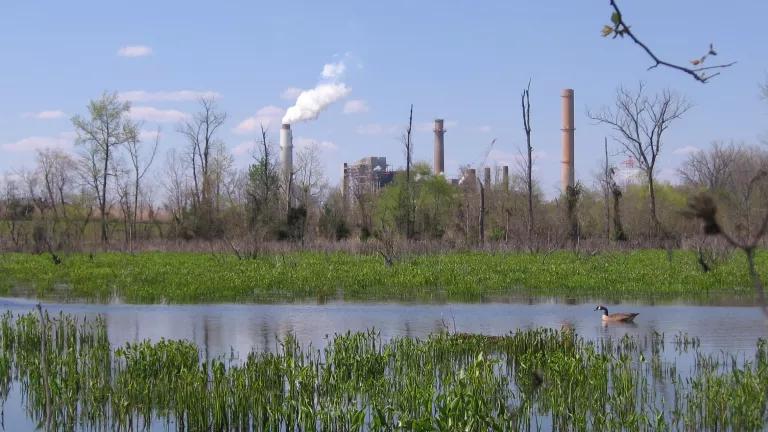SCC Watchdogs Order Dominion to Get Its Future IRPs on Track

Virginia policymakers continued today to slowly move the Commonwealth in a smarter, better, more-affordable direction. In this case, by improving oversight of an important but deeply-flawed planning process by our largest monopoly on how it spends your and my money, which for the most part, as a regulated monopoly, is ultimately the only money they spend.
In this case, it's the "Integrated Resource Planning" process (or IRP), the triennial 25-year plan that Dominion relies on to justify future spending of Virginians' money. Historically, IRPs serve as Dominion's "opening bids" on massive spending. For those keeping track, these opening bids for spending other-peoples'-money fluctuate randomly between IRPs: in 2018's IRP, Dominion's spending bid was $1.5-4 billion, while 2016's IRP was $13 billion. Regardless of these wild gyrations (usually steadily upward), the one common theme between IRPs is the insidious fallacy that "it's expensive to lower our pollution, so here's our highly lucrative price-tag."
In the latest IRP, Dominion really went for broke: this round of pin-the-tail-on-the-donkey landed on an unprecedented, eye-popping opening bid of $22-36 billion. That cost is just to provide Virginians with a humdrum, basic utility service, and is in spite of the record low prices seen everywhere else on our electric grid. (And yes, that was a "B" for billions.)
Rather than accepting that bloated premise, the State Corporation Commission (SCC) today ruled that our largest monopoly power utility must overhaul their long-term planning process, and with it the otherwise outlandish and random dollar figures it continually spits out. The SCC did so by summarily declaring that Dominion's latest IRP is not "reasonable" or "in the public interest."
More important and impactful for everyday Virginians, the Commission outlined several reforms that Dominion must reflect in future IRP updates and filings. With those reforms, we can reasonably hope for at least incrementally more commonsense planning for how a large regulated monopoly meets both electricity needs and environmental goals, and at the lowest possible cost.
Here are three key improvements that the SCC directs Dominion to include in future IRP filings:
Include, rather than exclude, energy efficiency as a core part of Virginia's long-term energy and climate action mix (p. 12): Dominion erroneously built-in an energy efficiency "cliff" after 2025, assuming zero additions of this cost-lowering asset would occur after that year. That kneecapping gets it exactly backwards, especially as Dominion also assumed it would construct many many gigawatts of vastly more expensive steel-in-the-ground generation, the costs of which efficiency is designed to avoid. The Commission is right to ensure efficiency is a key building block for reducing emissions and cost, in every year going forward.
Conduct least-cost, rather than most-cost, modelling of what resources are actually needed in Virginia (p.14): Dominion forced into the IRP plan a very long wish-list of unnecessary resources, which may make investors salivate, but would hit Virginia consumers hard. Moving forward, Dominion must let the modelling software select only the resources that are actually needed, and at the lowest cost. (Though as past IRPs have shown, the Commission will need to stay on high alert for many other ways of "gaming" the model.)
Bill impact analysis (p.15): in addition to planning what to build, how much it will cost the average citizen is another key takeaway of any good IRP. This proceeding projected a bill increase of between $52 and $67 per month over the next decade. Future IRPs should show less inflated bills, if Dominion and Virginia policymakers get serious about making energy efficiency a core part of Virginia's energy mix moving forward.
***
What's next: Dominion's update to the IRP due later this year must include these improvements and others. There is endless utility creativity and fun-with-numbers involved in every iteration of the IRP, as triennial bids to inflate costs paid by Virginians. However, today's SCC Order gives Virginians and policymakers a fighting chance at someday getting some real facts on what a clean and low-cost electricity system might look like. (And of course, the real rubber will meet the road in this year's "rate case," a backward look at Dominion's actual, rather than pie-in-the-sky, costs and revenues, under the auspices of a wholly separate, but just as tortured, only-in-Virginia regulatory regime.)
If energy efficiency is Virginia's core, first-order resource, we can expect those dollar figures back here in the real world to be much, much lower than this, Dominion's IRP opening bid to big spending.
